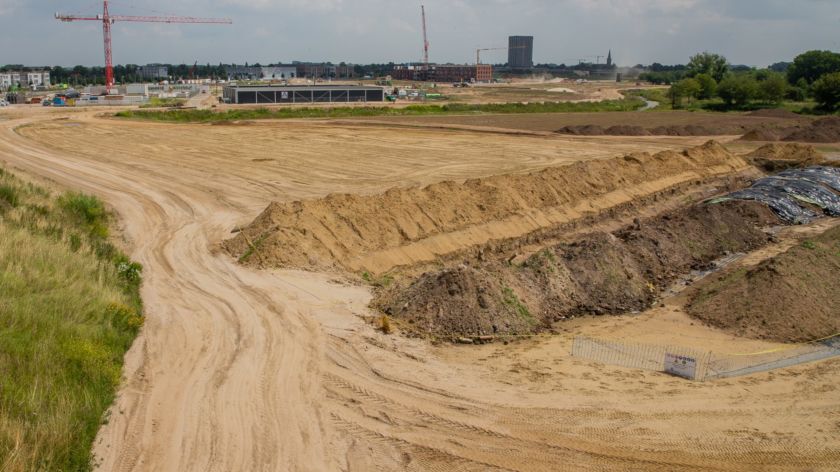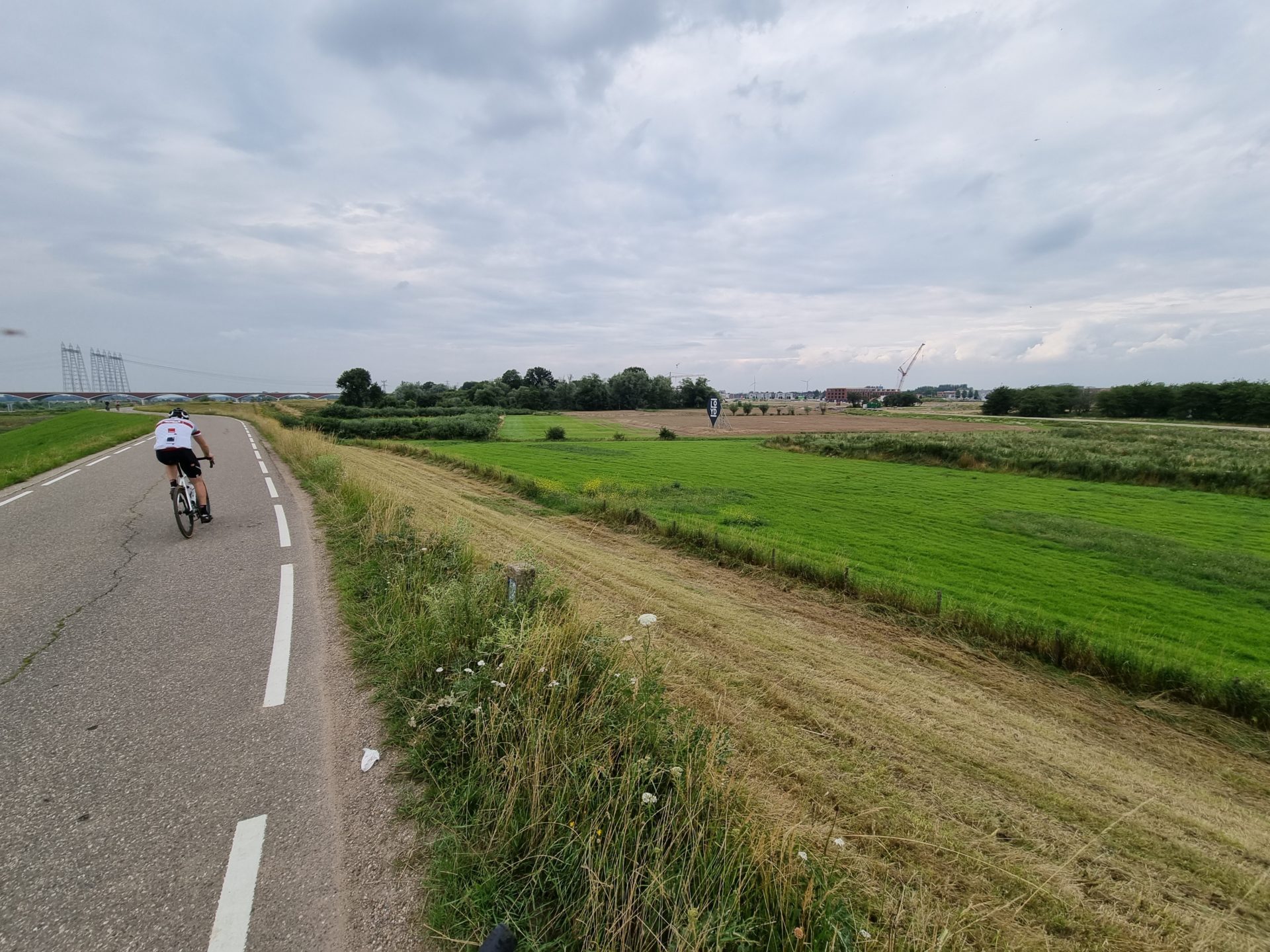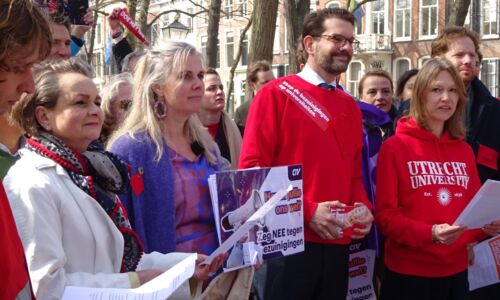How a volunteer organisation brings abandoned orchards back to life
-
 Werkzaamheden in de nieuwe wijk Hof van Holland bedreigen de oude boomgaarden op de achtergrond. Foto: David van Haren
Werkzaamheden in de nieuwe wijk Hof van Holland bedreigen de oude boomgaarden op de achtergrond. Foto: David van Haren
Since 2015, non-profit organisation Co-bomen has been bringing abandoned orchards in Nijmegen back to life. A story about growing popularity, ageing volunteers, and a green paradise north of the Waal. ‘The orchards are a healthy place away from the city and a great place to meet new people and experience a sense of community.’
It takes a ride through Nijmegen’s Haven- en Industrieterrein, onto the Oversteek bridge and down to the Oosterhoutsedijk to reach Hof van Holland. Located in the backyard of the Fabrikaat Art Mission, Hof van Holland is one of four orchards managed by the Co-bomen family, a volunteer organisation established in 2015. What started as a group of citizens, enthusiastic about the green spaces around Nijmegen, has since brought abandoned orchards back to life and opened them up for Nijmegen residents to enjoy and use.
Martine van Harten, who came to Nijmegen in 1995 as a student at the then Roman Catholic University of Nijmegen, is, along with Bas Broeder, the founder of the organisation. After working various bureaucratic jobs all over the Netherlands, Van Harten got bored of the paperwork and decided to search for alternatives. The result was the founding of a ‘co-workers’ company, which brought her in touch with Broeder, resulting in the beginning of the ‘Co-bomen’ dream.
Issues of urbanisation
Before the organisation took over, orchards like the now blooming Hof van Holland lay overgrown, wild and forgotten. According to Broeder, spaces like abandoned orchards within municipality limits are easy targets for transformations into living spaces, especially if they fail to serve their purpose for recreational activities. Consequently, the maintenance of green spaces like orchards is an essential part of their existence. Maintenance, which members of Co-bomen are now taking care of, one working group per orchard at a time.
All the four orchards lie in the Waalsprong, a VINEX site on the north bank of the Waal River aiming to tackle the need for more and better housing in densely populated urban areas. Something that might endanger sites like abandoned orchards. However, Van Harten and Broeder don’t understand themselves as milieu activists. While they remain persistent on preserving the orchards, fighting urbanisation or engaging in environmental activism is not their motivation behind it.
Keeping it fun
However, maintaining an orchard is not just work. According to Van Harten, keeping the project fun and bringing people together remains a big part of the organisation and has been since Co-bomen’s early days. Since then, the organisation’s concept has resulted in rising member numbers. ‘It did start with just Bas and myself, but soon grew to about a hundred members, after which we stopped keeping track’, says van Harten. With festivals organised by the organisation now attracting up to a thousand people.
Yearly festivals organised by Co-bomen combine harvesting with performances in about fifteen different green locations. Additionally, the members organise and engage in events and activities, such as cycling tours, the brewing of herbal drinks, and making bee hotels. Thereby, Co-bomen regularly collaborates with partners like the Artisan Nevel, brewers from the Honigcomplex, but also authors like Michiel Bussink and local daycares and schools.
Message to the youth
Monique Schoutsen, an information specialist at Radboud’s university library has been a part of the organisation since the beginning. ‘I grew up around tomatoes, potatoes and flowers, so the orchards were an essential place of peace for me when I first experienced them.’ For Schoutsen, the Co-bomen project was therefore like a magnet of attraction. However, members of the Co-bomen are aging.
‘The youth of Nijmegen has a psychological barrier with the waters of the Waal, which prevents them from experiencing the northern parts and green lungs of the city,’ according to Schoutsen, who thinks it is essential for young people to cross the Waal and lending a hand to the work at the orchards. ‘The Co-bomen orchards are a healthy place away from the city and a great place to meet new people and experience a sense of community.’
However, especially young people experiencing the orchards themselves, according to Broeder, doesn’t have to be too far in the future: the two-day Festival De Oversteek, to be held on the 4th and 5th of September 2021, is the next big event of the Co-bomen and potential new members are, according to the organisers, very much invited.




